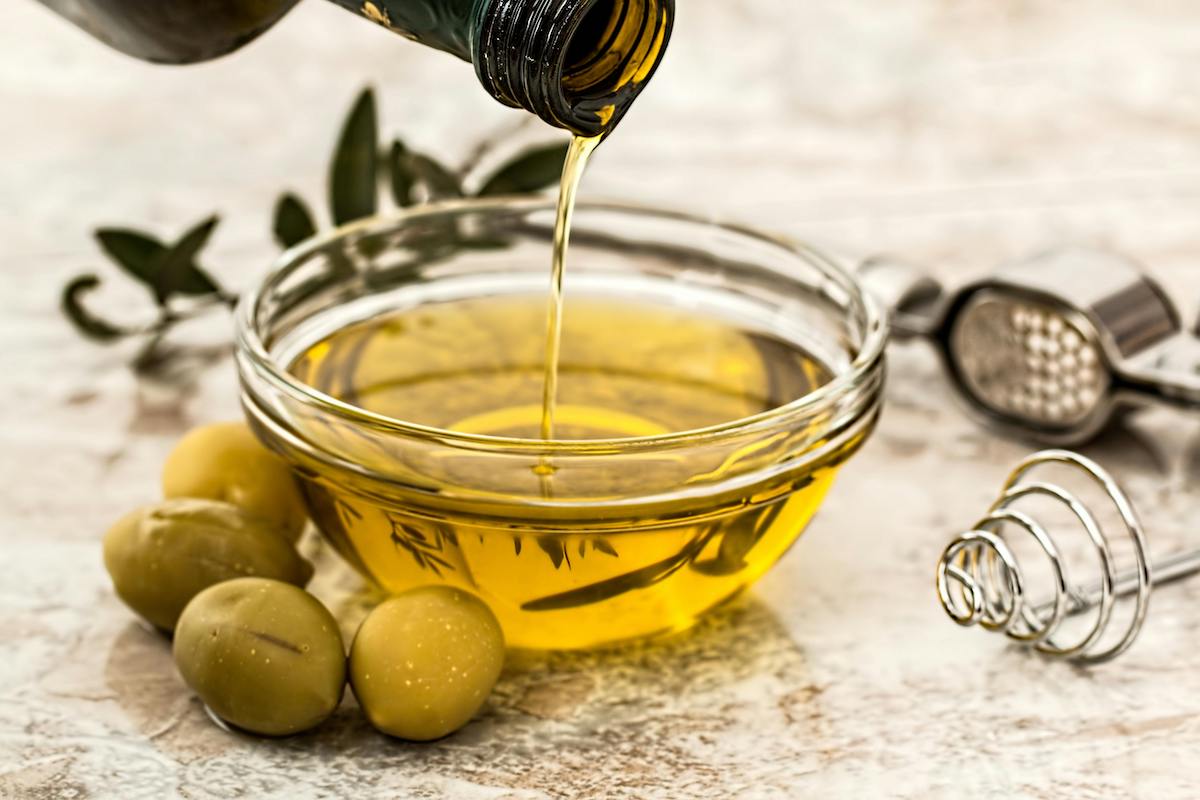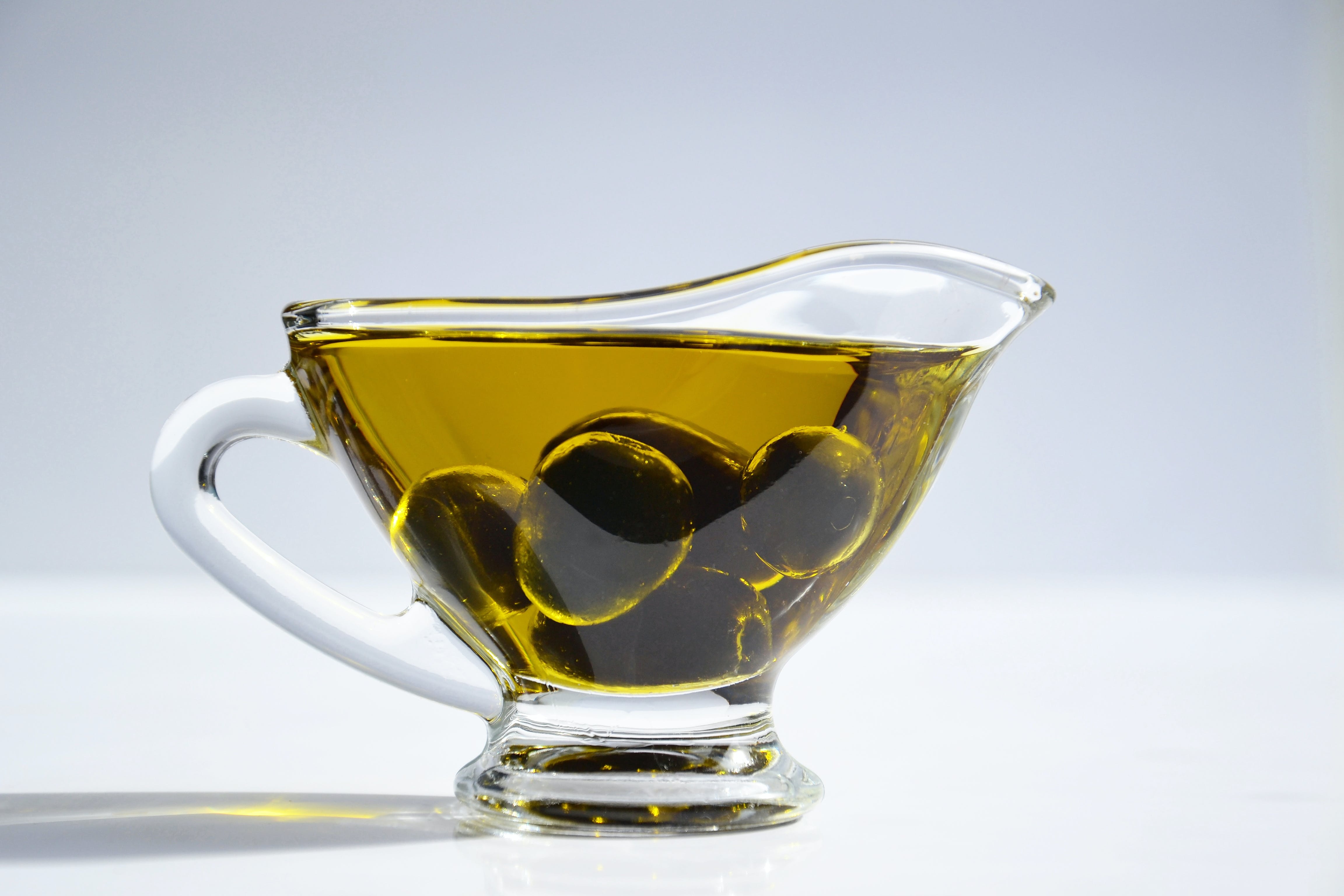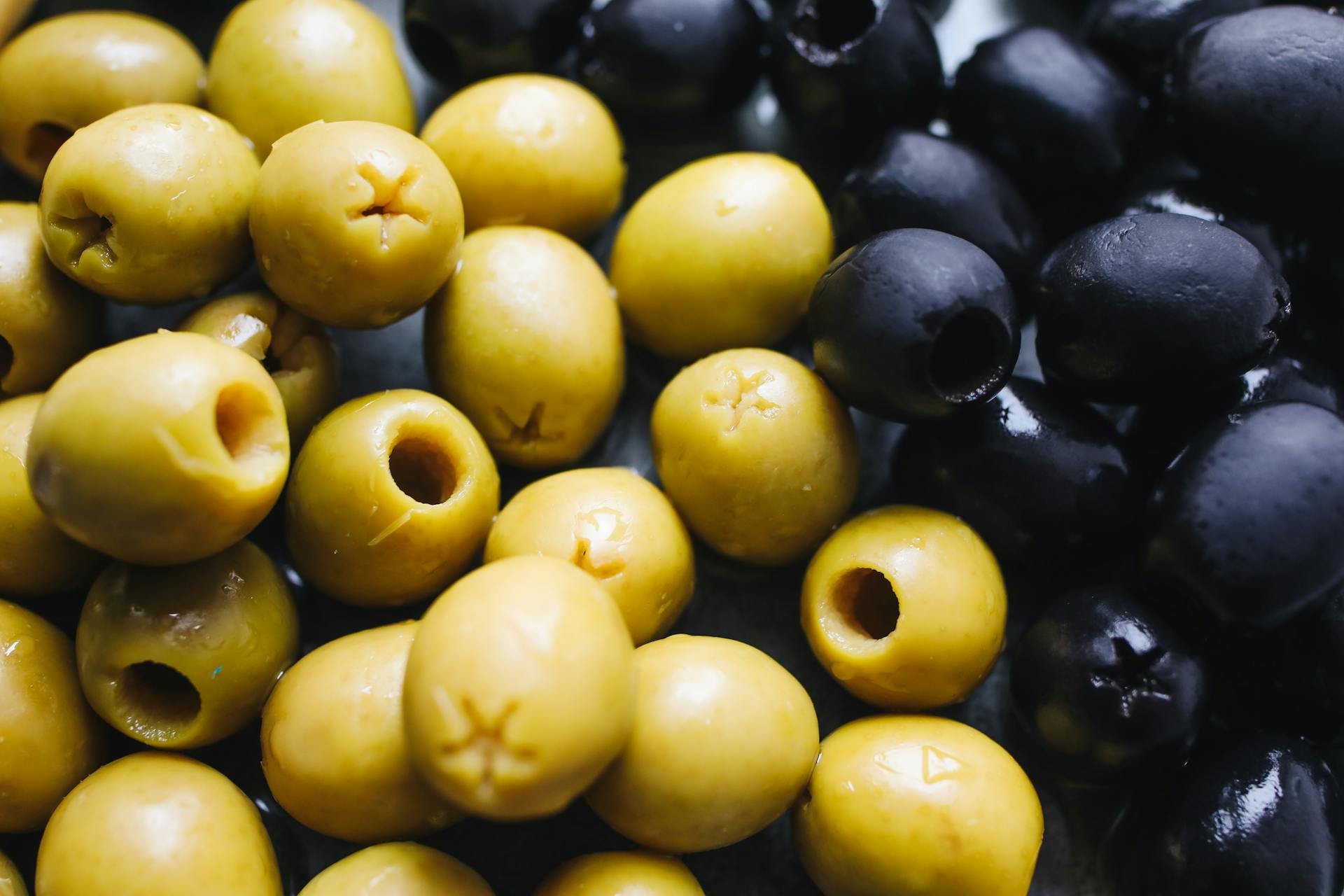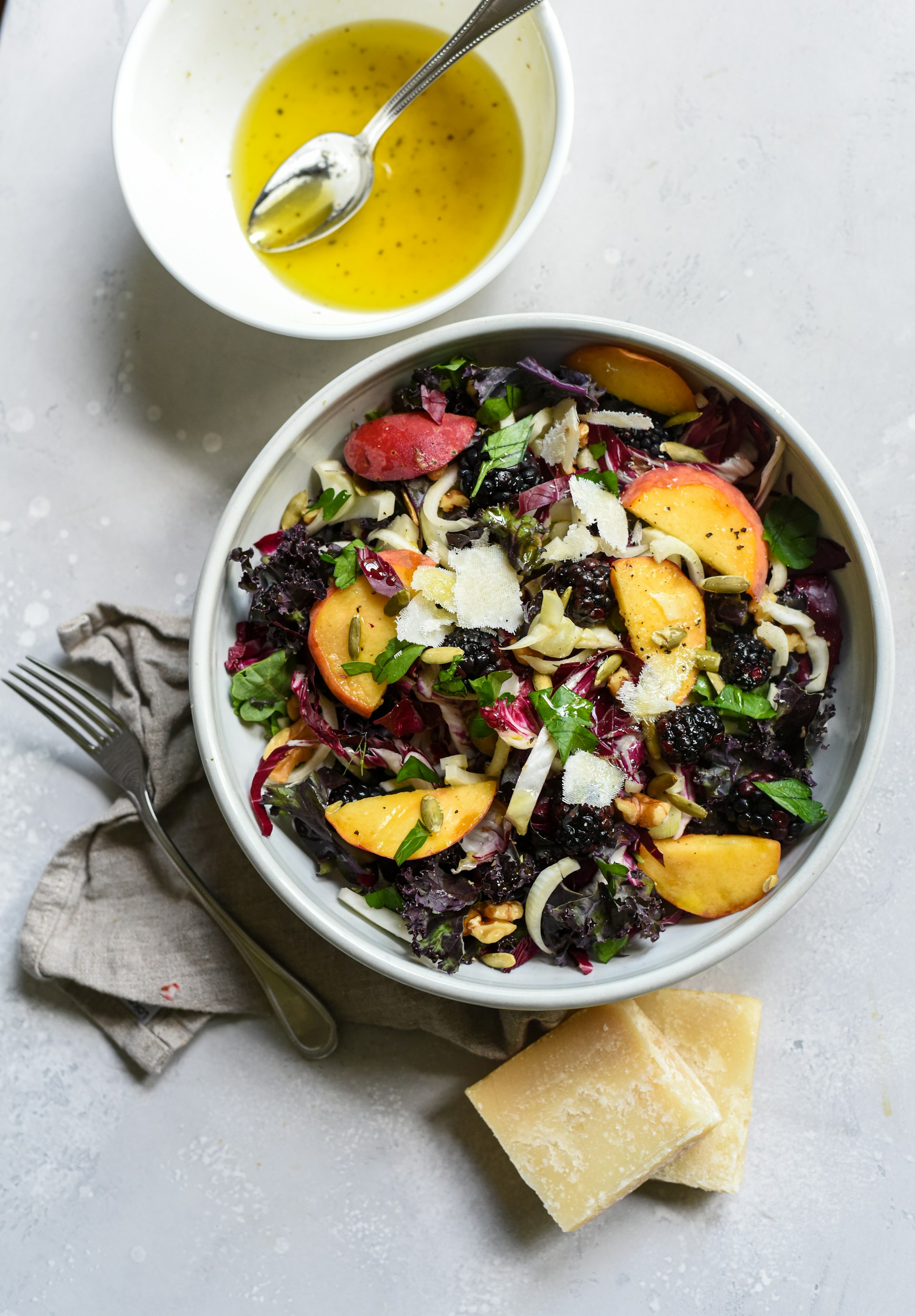
The rich flavor and golden color of olive oil are just some of the reasons people love it. You might use it as the base for a flavorful salad dressing or to cook your food and coat the pan. Olive oil is a satiating staple of the Mediterranean and ketogenic diets. Most health professionals and advocates believe olive oil is one of the superior healthy fats to bring into your kitchen.

What is olive oil?
As the name suggests, olive oil is a rich oil derived from olives. Olives are small green or black stone fruits that grow on evergreen olive trees. The olive trees are cultivated in Syria, the Mediterranean region, and other places.
Today, manufacturers typically use mills to grind the olives into a paste before mixing the paste and separating the pulp from the oils with pressing or centrifugation. Some manufacturers implement additional processing steps to refine the oil further. The olive’s outer flesh contains as much as 30% oil, which can be used for cooking, medicine, and cosmetics.
The three primary grades of olive oil are refined, virgin, and extra virgin. The grades vary depending on the amount of processing and the nutritional content. Many people believe extra virgin

What are the benefits of olive oil?
Olive oil has been extensively studied for its benefits, from improving heart disease to promoting brain function. The Mediterranean diet has been proven to exert favorable effects on overall health and body weight, and
Potent anti-inflammatory
Inflammation is a primary driver of heart disease and other chronic conditions. Olive oil is loaded with vitamins E and K and antioxidants that reduce your risk of inflammation and a range of chronic diseases. One tablespoon of olive oil (around 14 grams) provides 13% of your daily value (DV) for vitamin E and 17% of the DV for vitamin K.
Reduces oxidative damage
The powerful antioxidants in olive oil reduce oxidative damage, which is a potential contributor to cancer.

Improves heart health and blood pressure
This beloved oil is high in healthy monounsaturated fats and anti-inflammatory antioxidants that protect your blood cholesterol from oxidation and lower your risk of heart disease. Studies also show olive oil might improve the functioning of the lining of your blood vessels and help prevent unwanted blood clotting. Virgin

Why is olive oil considered a healthy fat?
If you’re on a ketogenic diet, you might just drizzle a little more olive oil onto your low-carb veggies and dishes just to make sure you’re getting enough good fats to remain in ketosis.
Around 73% of the fat in olive oil is oleic acid, which is a monounsaturated fat. Studies reveal oleic acid lowers inflammation and inflammatory markers like C-reactive protein. Oleic acid might also positively affect genes linked to cancer.
Olive oil provides zero carbs and lots of monounsaturated fatty acids that research suggests could benefit heart health and protect against heart disease. This healthy fat also keeps you feeling fuller for longer.

Best ways to use olive oil in your kitchen
There are plenty of delicious ways to bring olive oil into your kitchen, such as:
- Make a salad dressing with balsamic vinegar or lemon juice and your favorite herbs
- Lightly coat your roasted veggies or meals to get more good fats
- Drizzle olive oil over your cheese and tomato slices
- Make a tasty Italian-style bread dip
- Cook with it (some experts only recommend sauteing, baking, and cooking with olive oil at lower to moderate temperatures)
- Add it to your soups
Olive oil buying and storage tips
Most health professionals and advocates suggest finding labels with terms like cold-pressed, organic, and expeller-pressed. Check the label to ensure the olive oil you’re buying is good quality and isn’t mixed with refined oils like canola.
Try to avoid storing olive oil near your stove, where it could be exposed to heat. You also want to avoid exposure to light and oxygen. Store your bottled

Can you cook with olive oil?
Fatty acids oxidize or react with oxygen and become damaged while cooking. This is mainly due to the double bonds. Saturated fats found in butter, coconut oil, and animal fats don’t have double bonds, so they are resistant to high heat. Many experts recommend cooking with them, especially at higher temperatures.
Olive oil is mostly made up of monounsaturated fatty acids, which have only one double band, so they are fairly resistant to moderate heat. For example, during one study, researchers heated extra virgin



